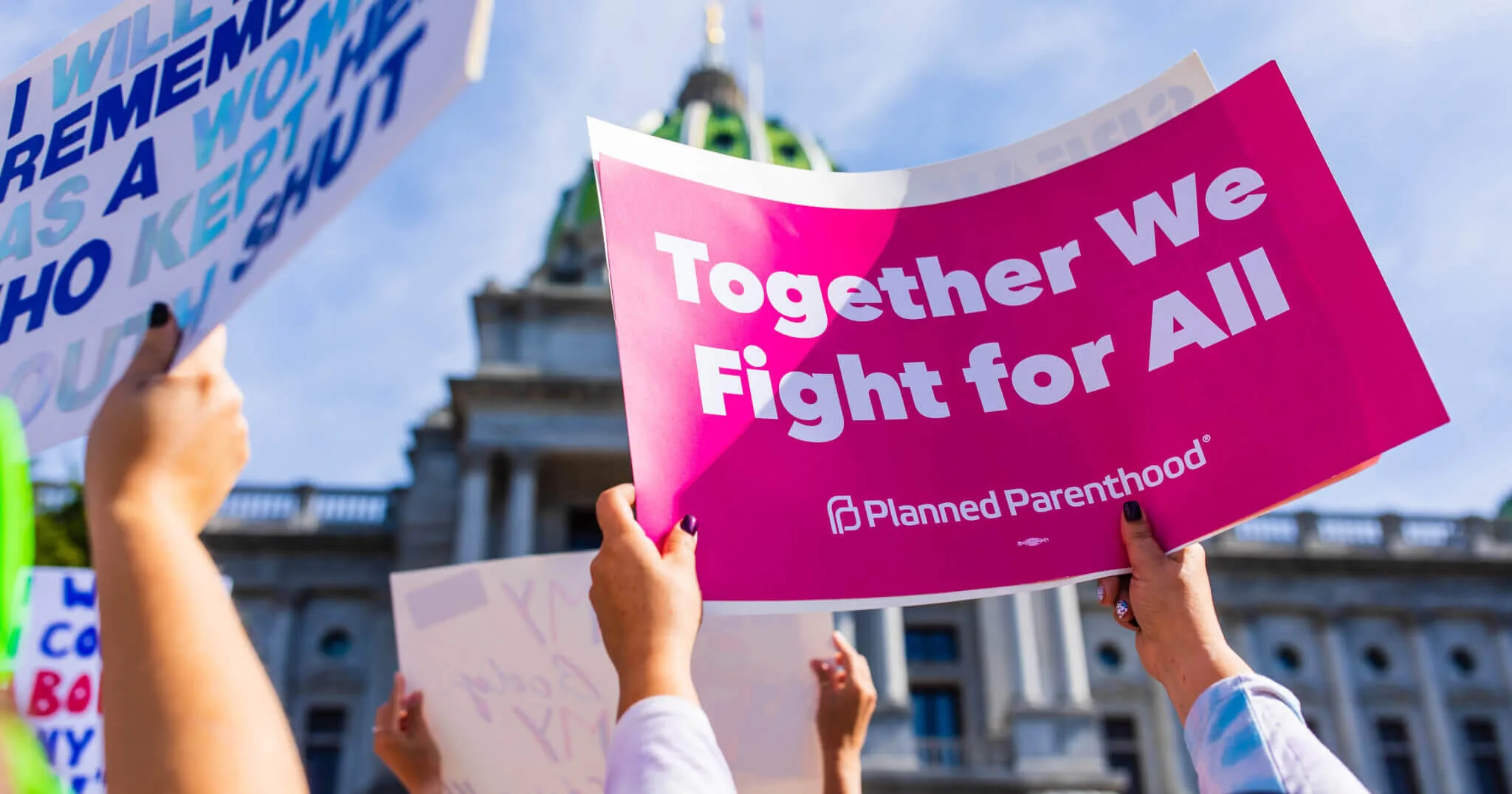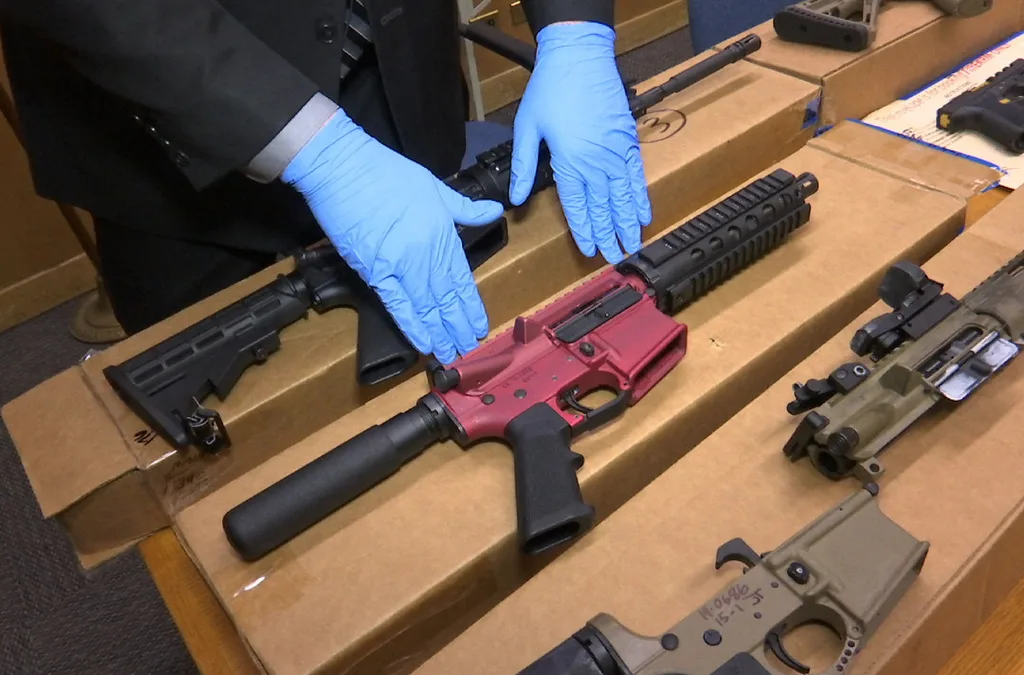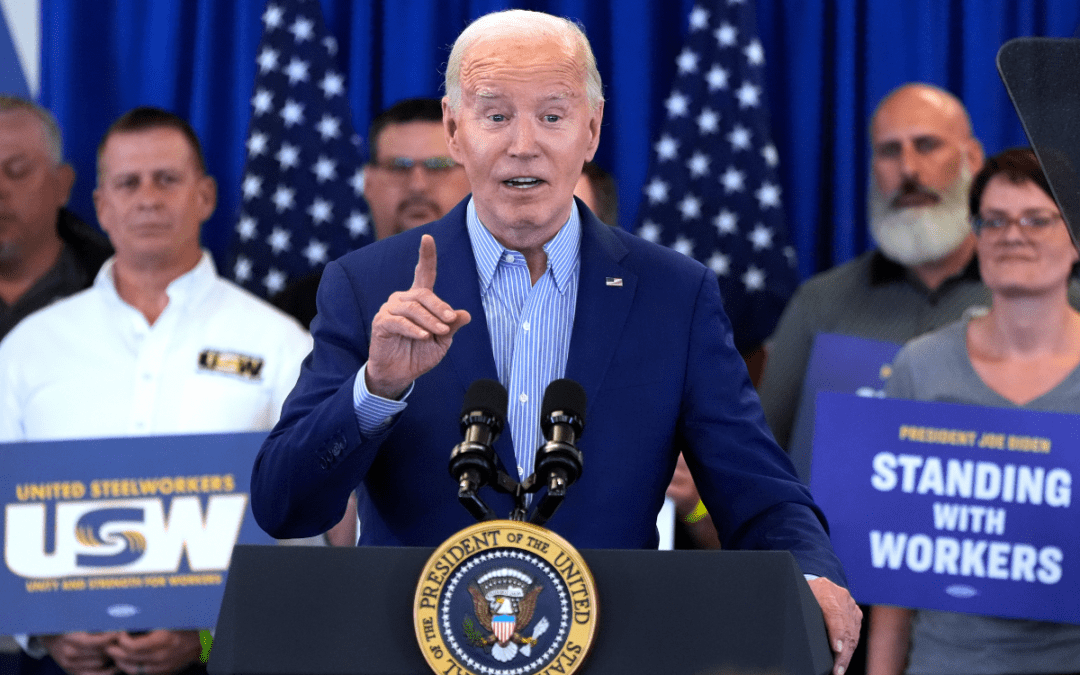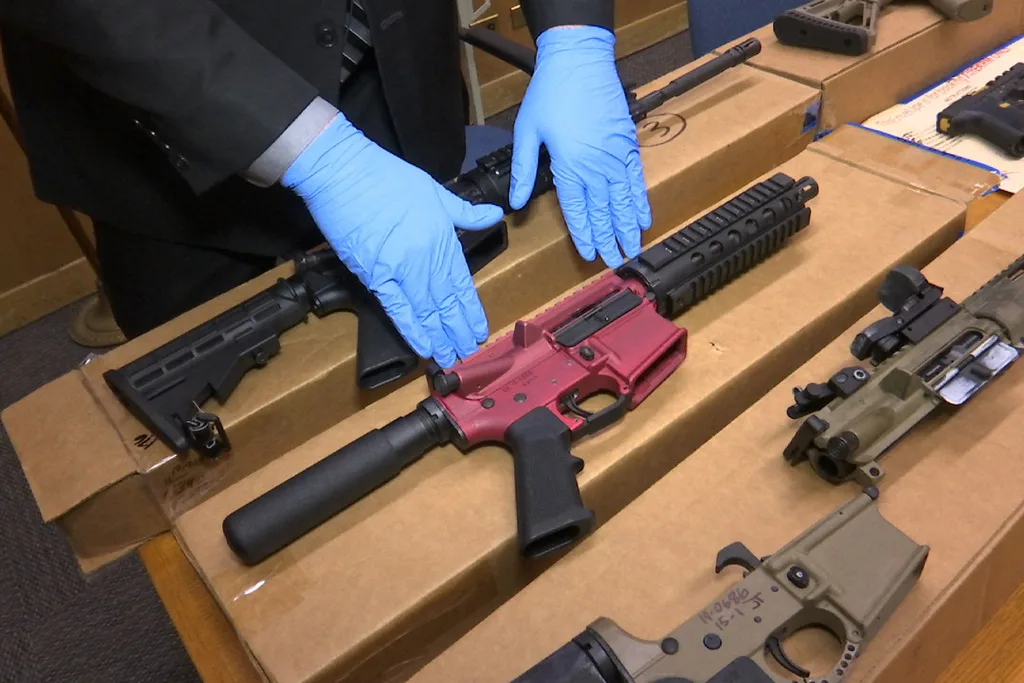
Former President Donald Trump speaks at a rally in Wilkes-Barre, Pa., Saturday, Sept. 3, 2022. (AP Photo/Mary Altaffer)
Before ballots were even tallied in 2020, former President Donald Trump and his allies began promoting false accusations of election fraud. This year’s midterm elections are already bringing voters reruns of these fictions–many from the same untrustworthy and dishonest sources.
This September, Trump and a handful of his Republican allies met in Manhattan at the tower bearing his name to discuss the “scam” he believed was starting to brew in Philadelphia and in Pennsylvania as a whole, Rolling Stone reports.
Michael Caputo, a former Trump administration official, told Rolling Stone just last week that during that briefing, Trump made it clear that he was concerned that what happened in 2020 was going to happen again, referencing the false and thoroughly debunked assertion that voter fraud in Philadelphia helped Biden win Pennsylvania. Trump told his allies that he wanted conservatives to do something about this.
Specifically, Republican leaders were advised to “recruit and train election observers and a team of attorneys to oversee historically problematic precincts.”
And Trump’s allies have a game plan, as Rolling Stone notes. They have plans for how to aggressively challenge those votes and voters, particularly in races that may not be called on election night. In those cases, they plan to “wage aggressive court campaigns” and “launch a media blitz,” similar to what Trump did himself in 2020 when he declared victory even though the race was far from decided.
Trump himself has been briefed on plans in multiple states and critical races, such as the Senate contest between John Fetterman and Mehmet Oz. If Oz does not win by a wide enough margin to trigger a quick concession from Fetterman, Trump’s team and other Republican allies are already planning to “wage a legal and activist crusade” against the election integrity of places like Democratic-stronghold Philadelphia.
Trump isn’t the only GOP leader spreading misinformation about the coming election, however. Toni Shuppe, a political activist and close ally of the Republican candidate for governor, Doug Mastriano, recently published the final installment of her five-part “Plan for Victory in November” that she says is designed to “stop the steal of 2022,” according to The Philadelphia Inquirer.
She covers a lot in this “plan,” but a key point she makes is urging voters to cast their ballots “as late in the day as possible” on Election Day in order to deliberately “overwhelm the system.” Shuppe theorizes that voting tabulators–or “cheat” machines, as she calls them–are connected to the internet, which they are not, and can therefore be manipulated by hackers, which they cannot.
Shuppe isn’t acting in a vacuum. Over the past two years, the “Big Lie” that Trump won the 2020 presidential election spread across the Keystone State and is having very real consequences for 2022.
In the past few weeks, a false claim started circulating stating that Pennsylvania has sent “255,000 unverified” voters ballots for the midterm elections. The lie references a letter from Republican state lawmakers to the Pennsylvania secretary of state that claimed that the state had issued “over 240,000 unverified ballots.” Trump himself even amplified the claim on his right-wing Twitter-esque platform, Truth Social.
The Associated Press found that that claim misrepresents state data, which lists many voters as “not verified” merely for internal workflow purposes, and includes, for example, voters who have requested permanent mail-in ballots whose identities were verified prior to the primary election and will be re-checked for the general election.
“It does not mean that the voters failed to provide correct identification information, nor does it mean their identities weren’t ultimately verified,” the AP review states.
This isn’t the only instance of disinformation spreading in Pennsylvania. In September, mysterious letters began arriving in mailboxes in Chester County, falsely telling people that their votes in the last election may not have been counted. And back in July, a tweet declaring that Pennsylvania will not be accepting mail-in ballots started making the rounds.
The result of this disinformation has “hardened the state’s partisan divide and deepened distrust not only of politicians, but of the political process itself, since the way ballots are cast and counted has been at the heart of much of the disinformation swirling around,” the New York Times writes.
Despite these efforts to sow distrust in democracy, voting continues to be a simple and secure process, and voter fraud is vanishingly rare. An Associated Press review of every potential case of voter fraud in the six battleground states disputed by former President Donald Trump in 2020 found fewer than 475 possible cases of fraud across Arizona, Georgia, Michigan, Nevada, Pennsylvania and Wisconsin—out of 25.5 million total votes cast in those states.
The mammoth disparity between the total votes cast in those states and the total number of possible fraud cases shows us that elections are safe and secure and that voter fraud is all but nonexistent in Pennsylvanian.
In Pennsylvania, voters must be a U.S. citizen for at least one month before the election, a resident of the Commonwealth for at least 30 days before the election, and at least 18 years of age on or before the date of the election.
It’s possible the vote count will take a few days, as it did in 2020. That’s because there are also 67 counties in Pennsylvania, all working to count millions of ballots. As Secretary of State Leigh M. Chapman noted in a release sent out in late October, before these mail ballots can be scanned and counted, they must be removed from their envelopes and prepared for scanning. Under state law that the Republican-led legislature has refused to change, this “pre-canvassing” cannot begin until 7 a.m. on Election Day.
As Chapman notes, throughout voting and pre-canvassing, people serving in specific roles observe the integrity of the process. When it comes to in-person voting, poll watchers will be present, and when it comes to pre-canvassing, authorized representatives who have been chosen by candidates and political parties can be present.
The process takes time, and it is extremely secure.
Voters have multiple options available to them to cast their ballots, including voting by mail or voting in person on Election Day at the polls, which will be open from 7 a.m. to 8 p.m. on Nov. 8.
Looking for more information on voting in Pennsylvania? Click here.
Politics

Opinion: Is Reproductive Healthcare just a women’s issue?
In this op-ed, Pennsylvania resident Lynn Strauss discusses the Republican Party’s conflicting stance on reproductive healthcare policy and the...

2 top US gun parts makers agree to temporarily halt sales in Pennsylvania
Philadelphia filed suit against Polymer80 and JSD Supply last year, accusing the manufacturers of perpetuating gun violence by manufacturing ghost...

It’s official: Your boss has to give you time off to recover from childbirth or get an abortion
Originally published by The 19th In what could be a groundbreaking shift in American workplaces, most employees across the country will now have...
Local News

Conjoined twins from Berks County die at age 62
Conjoined twins Lori and George Schappell, who pursued separate careers, interests and relationships during lives that defied medical expectations,...

Railroad agrees to $600 million settlement for fiery Ohio derailment, residents fear it’s not enough
Norfolk Southern has agreed to pay $600 million in a class-action lawsuit settlement for a fiery train derailment in February 2023 in eastern Ohio,...




